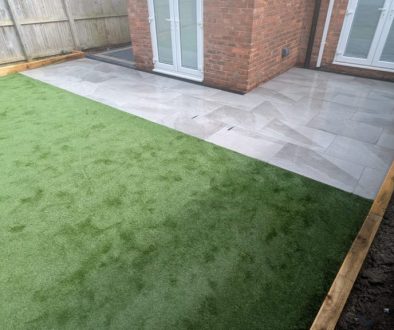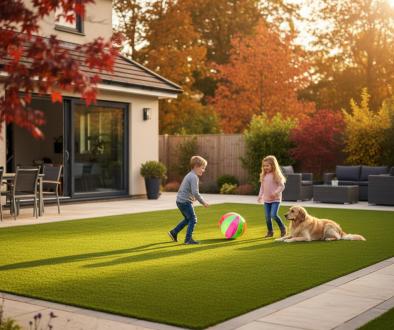Resin vs Block vs Tarmac: Which Driveway Surface Lasts Longest?
When investing in a new driveway, most homeowners think about appearance and cost first. But longevity is just as important. A surface that looks great on day one may not stay that way if it can’t withstand years of vehicles, weather, and wear.
In the North East, where freeze–thaw cycles, heavy rain, and frequent use put driveways under strain, choosing the right material makes a big difference. Resin, block paving, and tarmac are three of the most popular options, each with unique strengths and weaknesses. This guide compares them to help you choose the surface that will go the distance.
Resin Driveways: Modern and Resilient
Resin-bound surfaces are one of the newest choices available, offering a sleek and modern finish. Their design blends natural aggregates with a resin binder, creating a durable yet flexible layer.
In terms of longevity, resin performs impressively. It typically lasts 15–20 years when installed and maintained properly. One reason is its permeability — water drains through the surface, reducing the risk of standing water and frost damage. Another is its flexibility, which allows it to withstand minor ground movement without cracking.
Maintenance is minimal compared to block paving. A simple pressure wash keeps the surface fresh, and its smooth finish discourages weed growth. The main risk to lifespan is poor installation — if the base isn’t prepared correctly, the resin may lift or weaken over time.
For homeowners who want a long-lasting, low-maintenance solution with modern kerb appeal, resin is a strong contender.

Block Paving: Classic but Demanding
Block paving has been a driveway favourite for decades, valued for its decorative patterns and timeless look. Individual bricks or blocks interlock to form a strong surface that can easily be customised.
With good care, block paving can last 20–25 years or even longer. One of its biggest advantages is repairability. If a section sinks or cracks, the affected blocks can be replaced without disturbing the rest of the driveway. This makes block paving a smart long-term investment.
However, block paving requires more maintenance to achieve such lifespans. Weeds can grow between joints, and sand may need topping up periodically. Without this care, blocks can shift, allowing water in and reducing structural strength.
For those willing to commit to maintenance, block paving offers one of the longest-lasting and most visually versatile driveway options.

Tarmac: Strong but Shorter Lifespan
Tarmac, or asphalt, is widely chosen for its cost-effectiveness and quick installation. It provides a neat, smooth finish that suits both residential and commercial properties.
On average, tarmac lasts 12–15 years before resurfacing is required. It is durable under heavy loads and handles freeze–thaw cycles fairly well, but over time it becomes brittle. Cracks and potholes can form, especially if drainage is poor or if oil leaks from vehicles.
Regular resealing can extend its life, but compared to resin and block paving, tarmac generally has the shortest natural lifespan. It remains popular, however, for homeowners who prioritise affordability and want a practical solution for everyday use.

Comparing Lifespans Side by Side
Here’s a simple breakdown of how these three driveway materials perform:
- Block Paving – 20–25 years with regular maintenance
- Resin – 15–20 years with minimal upkeep
- Tarmac – 12–15 years, may require resealing or resurfacing
This shows that block paving generally lasts longest, resin offers strong durability with less maintenance, and tarmac has the shortest average lifespan but is budget-friendly.
Factors That Affect Lifespan
It’s important to note that material choice isn’t the only factor in how long a driveway lasts. Several other elements play a role:
- Installation quality – A poorly prepared sub-base will shorten the lifespan of any surface.
- Weather conditions – Freeze–thaw cycles and heavy rainfall test every driveway.
- Traffic load – Heavier vehicles place more strain on the surface.
- Maintenance routines – Regular cleaning, sealing, and small repairs extend longevity.
In other words, even the best material won’t last if installation and upkeep are neglected.
Choosing the Driveway That Lasts for You
Longevity matters, but so do budget, aesthetics, and maintenance preferences. Block paving remains the top option for lifespan, resin balances durability with ease of care, and tarmac provides a practical but shorter-term solution.
By weighing up these factors, you can select a driveway surface that not only suits your style and budget but also stands the test of time.
Ready to invest in a driveway that lasts? Contact M&C Paving Northeast today for expert advice and professional installation.




